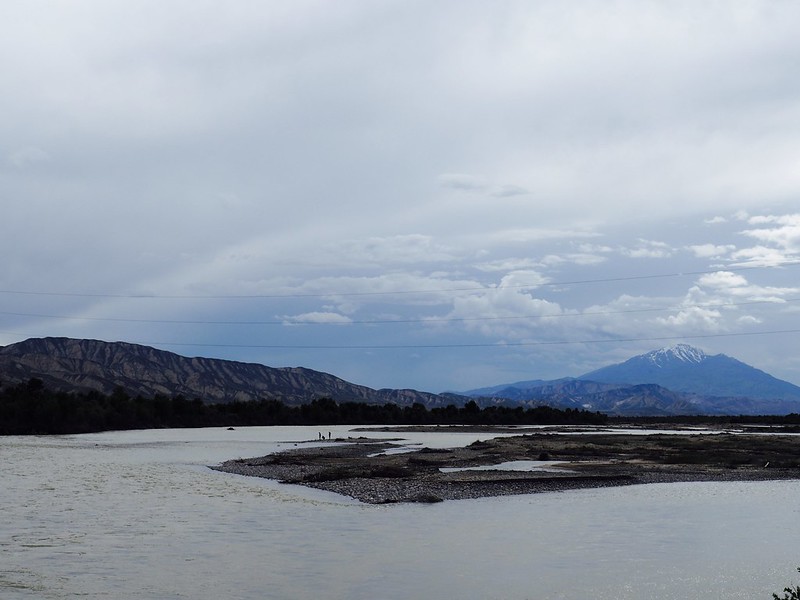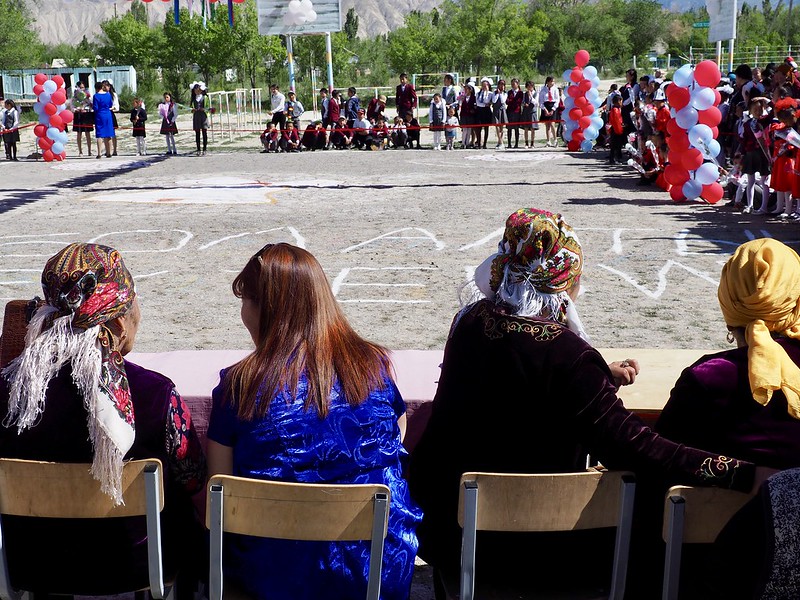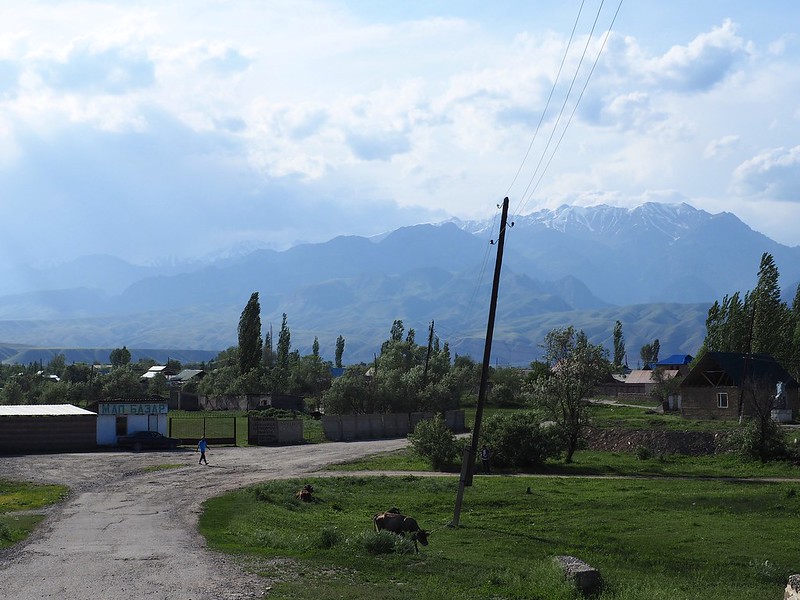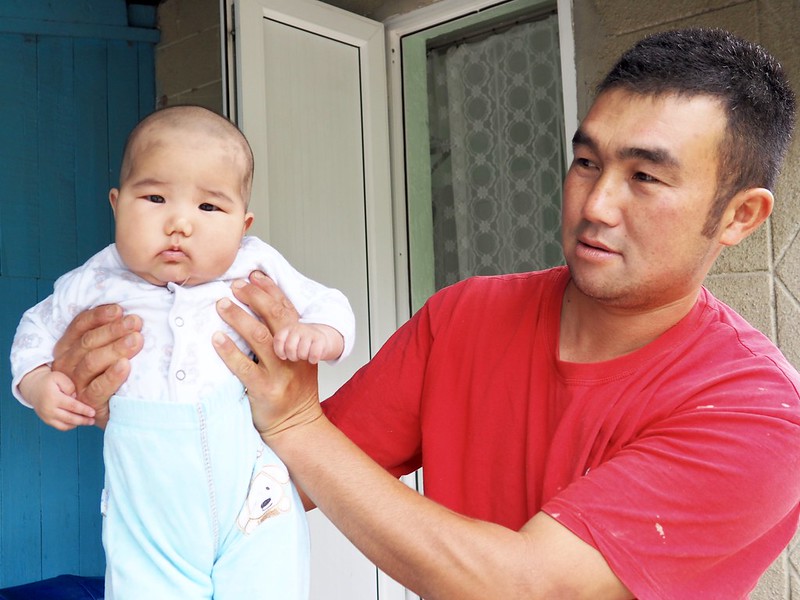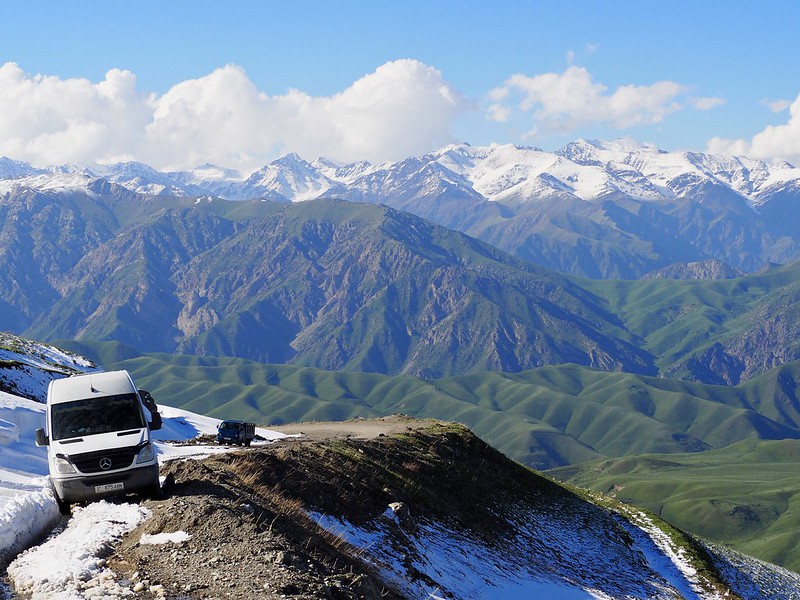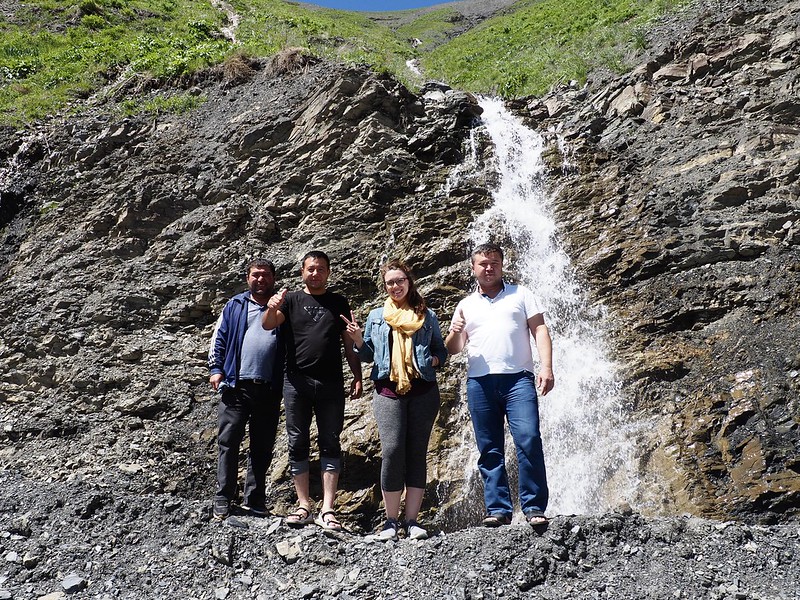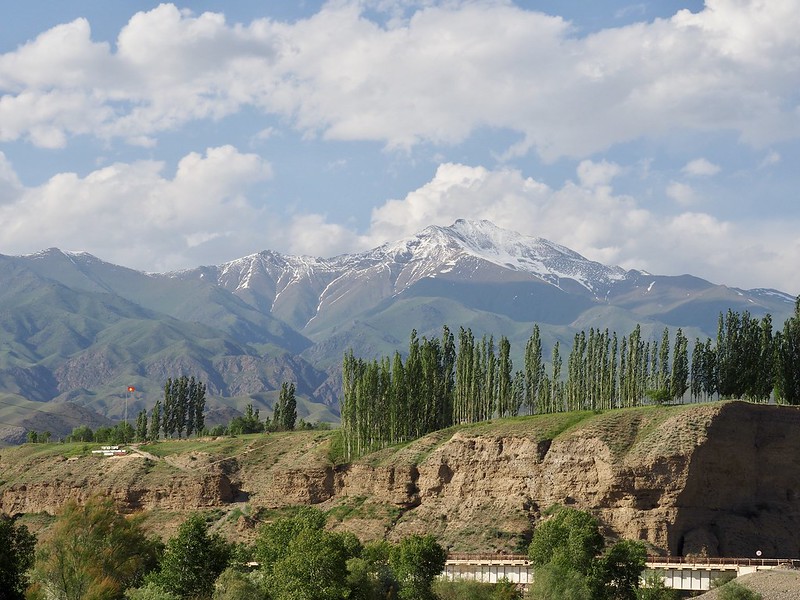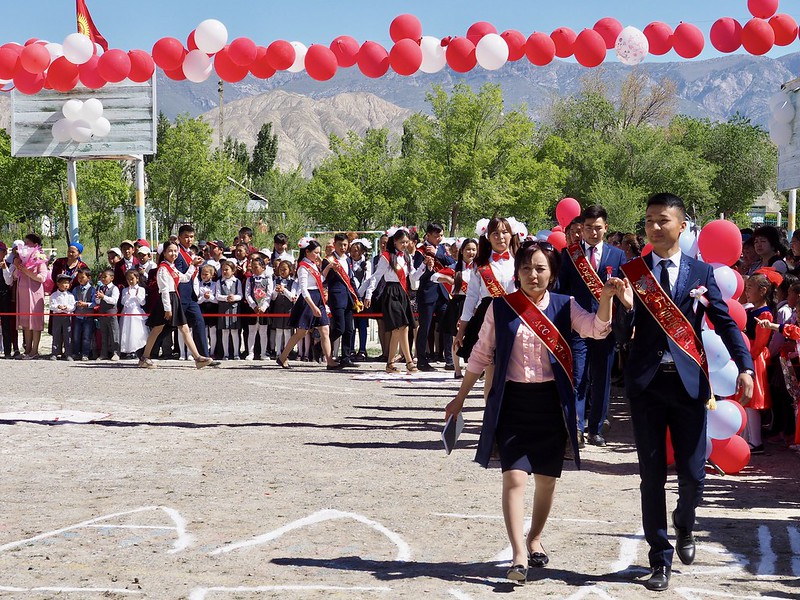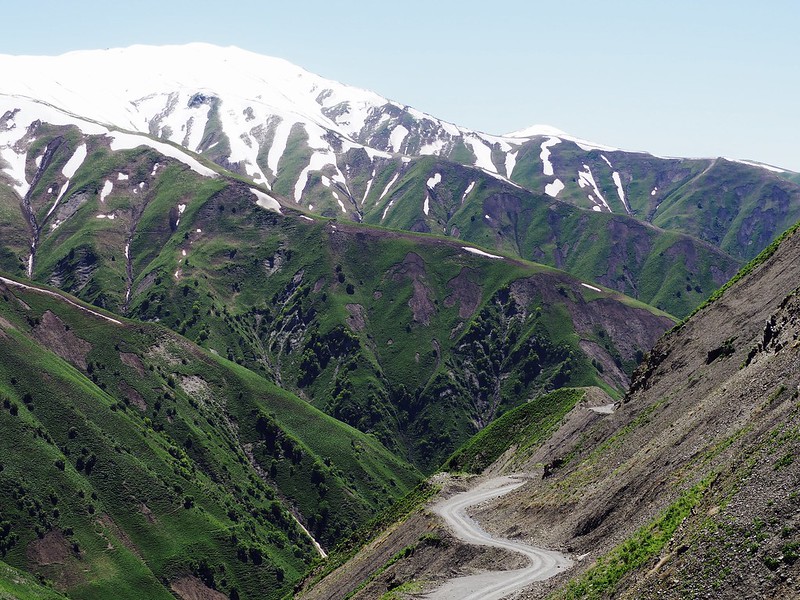“Kettik, let’s go,” the sweetest word you can hear after an hour sitting in a minivan waiting for passengers to come in from the village. I’m not sure whether it’s more satisfying when a driver announces a departure immediately after climbing in to the backseat of a packed Stepwagon, or after having waited in a stuffy marshrutka for seventy minutes on a slow day; I think it’s probably a u-shaped relationship.
Guljamal is the only person in her family who’s fasting for Ramadan (her mother is too, though when I’m visiting, she’s taking a few days off for her time of the month). She’s young, only in fifth grade, and she slips up when I bring out candy from the US. Immediately after popping a Reese’s peanut butter cup into her mouth, she clasps her face – which I read as a sign that she’s allergic, and start to panic. “No, no, Orozo!” she says in English. I put a finger to my lips and tell her I’ll keep it a secret. Later, when Guljamal runs inside at 8:30 to prepare for ooz achuu (Kyrgyz for mouth opening, or breaking fast) with a xeroxed copy of iftar prayers, she tells her mom anyway about the candy incident.
While staying in Togolok Moldo village, I took a day to visit the county capital, Baetovo. After my morning meetings at the school board office, I panicked about finding my taxi back to the village. Baetovo is pretty small, only about 10,000 people, but it’s big enough to take up more than just the one main road – the taxi could be anywhere. I stop in to a bodega and ask the woman behind the counter if she can call the driver and then point me in the right direction. She’s surprised that I made the request in Kyrgyz, which necessitates the full “who are you” conversation, complete with the “And you’re sure you don’t want to marry a Kyrgyz boy from our village?” line of questioning. I buy some juice from her on the way out, because I’m thirsty and she was helpful, and it only takes a minute to find my taxi. We wait in front of the bazaar (on a Wednesday afternoon, only 3 ladies selling vegetables under tents) for another three hours until the car fills up with the same people who came out from Togolok Moldo that morning.
Spending the weekend in Internatsional’ without internet was a breath of fresh air; I ate so much village bread, took a trip out to saray (“the animal shed,” aka the field where the family’s cows and sheep are taken to graze) to bring food to Urmat’s dad, and watched kids play in puddles. My host family has grown since I saw them last; baby Jansuu was born in January, right after New Year’s. I don’t know why people laugh when I say Jansuu is a copy of her dad, because it’s true – look at them.
It was easier, but also more expensive, than expected to get a taxis from Naryn to Kazarman to Jalalabad. I booked a seat on a Bishkek-Kazarman taxi, and even though I was only in the car for the last 4 hours of the 10-hour journey, I paid full fare. The driver was chatty; even when I put my headphones in and pretended to sleep, he just called out my name louder to ask whether I’d tried this Kyrgyz food or liked that Kyrgyz song. The Kazarman-Jalalabad trip was easier to arrange, but was logistically more challenging: the 3 men in the backseat, visiting from Andijan, Uzbekistan, delayed departure by 4 hours by calling every 15 minutes to say they’d be right there; a snow storm blocked the road at the top of the pass, leaving us stranded until a van of young men with shovels could arrive to dig out a path; normal stuff.
